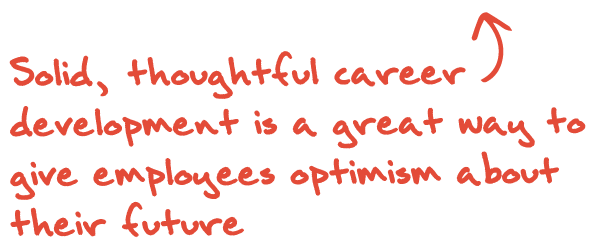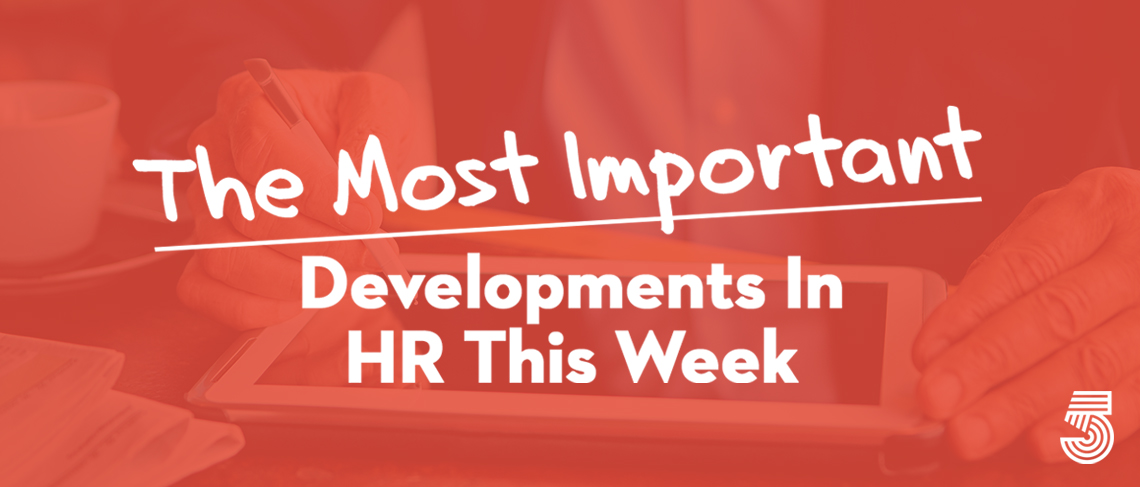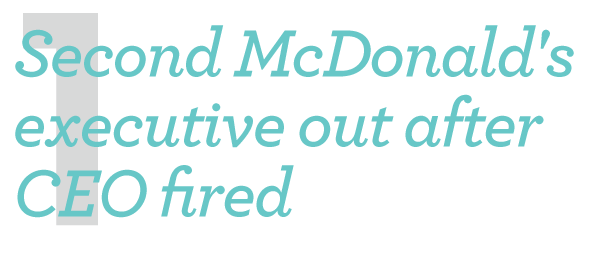
A huge HR bombshell this week, reported on in a variety of news outlets. This, from the Associated Press: “McDonald’s lost its top human resources executive Monday, days after the company’s CEO was fired for having a relationship with an employee. The Chicago-based burger giant said the departure of Chief People Officer David Fairhurst was unrelated to the exit of President and CEO Steve Easterbrook. The British businessmen are close friends; Fairhurst was promoted to his position in 2015 after Easterbrook became CEO. ‘I have decided the time has come for me to move on to my next career challenge,’ Fairhurst said in a statement posted on his LinkedIn page. McDonald’s announced Sunday that Easterbrook was fired for violating company policy by having a consensual relationship with an employee.” But Britain’s Daily Mail goes further, reporting: “Fairhurst’s family is speaking out, saying they believe Fairhurst was forced to step down because he knew about the affair and did nothing about it.” AP

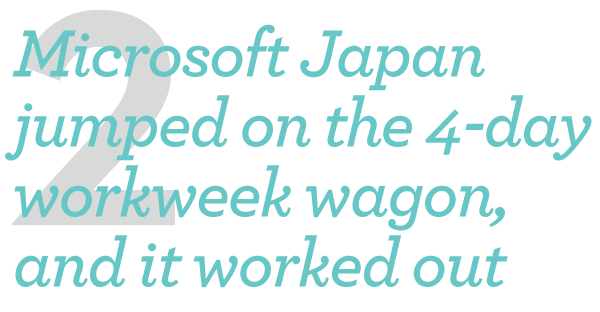
Yet another company has joined the ranks of businesses praising the four-day workweek: Microsoft Japan. Its “Work-Life Choice Challenge” took place in August 2019, during which all workers were “challenged to work in a short time, take a rest, and learn well.” Microsoft Japan is one of a steady stream of companies to test-run short weeks this year, including Shake Shack. The results were startling: a whopping 39.9% increase in sales compared to the same month last year, along with unexpected efficiencies, such as a 23% reduction in electricity usage and 58.7% fewer pages printed, partially due to the telecommuting initiative run during the same period. Notably, nearly everyone liked the changes: 92.1% of employees approved of short weeks, and 97% of employees liked the extra time for family and self-development. A mere 83% enjoyed the volunteering options. Fast Company

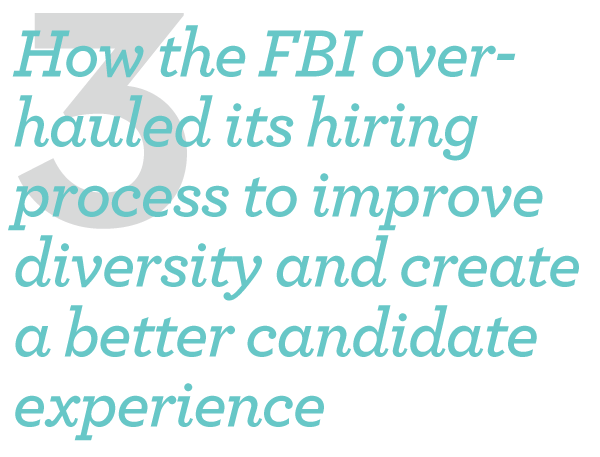
In 2016, former FBI director James Comey realized the organization was facing a diversity crisis in its special agent ranks. While the U.S. population was becoming increasingly diverse, the FBI’s special agent population was becoming more homogeneous. Comey tasked the HR team with fixing this issue, which was no small feat in itself. But as the team started to investigate, it realized this lack of diversity was actually a symptom of much larger issues that were fundamentally impacting the bureau’s ability to hire. The FBI’s hiring process was plagued by out-of-date processes and attitudes, a lack of planning, and limited visibility into its data. “We thought we had one problem,” says Peter Sursi, senior executive of recruitment and hiring at the FBI, “and we found a million others.” At LinkedIn Talent Connect 2019, Peter revealed some of the flaws the FBI uncovered in its hiring process, and the roadblocks it faced in trying to fix them. To learn more about how the FBI revamped its hiring process, watch Peter’s full talk from LinkedIn Talent Connect 2019. LinkedIn

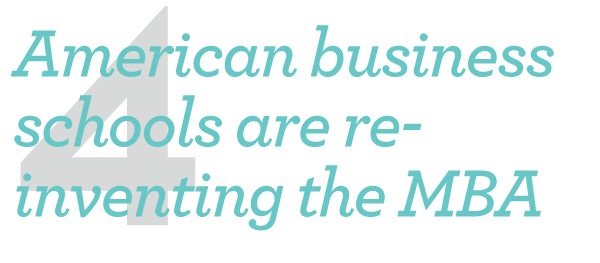
On a visit to New York in October Marc Benioff, boss of Salesforce, laid into American management education. It “programs” students to favor profit over the public good. This, he noted, is out of step with “the new capitalism.” Many deans concur. “We need our students to be thoughtful about the role of business in society, particularly at a moment in time when capitalism is coming under attack,” says William Boulding of Duke’s Fuqua School of Business. Nitin Nohria of Harvard Business School reports how younger alumni and incoming classes want “the place of work to reflect purpose and values.” Schools face growing competition from overseas and online programs — and, as Mr. Benioff’s critique implies, questions over hidebound curriculum. Many budding woke capitalists agree with Mr. Benioff and demand to be taught business beyond the primacy of shareholder value. At HBS, home to perhaps the most hallowed MBA, Mr. Nohria accepts that the market for its traditional offering is shrinking. In a sign of the times, his school has frozen tuition fees. He sees a dramatic expansion for “unbundlers” of online education, who “separate knowing, doing, and being.” In time, he says, they will converge with “bundlers” like HBS. Far from collapsing, he reckons, management education will be the richer for it. The Economist
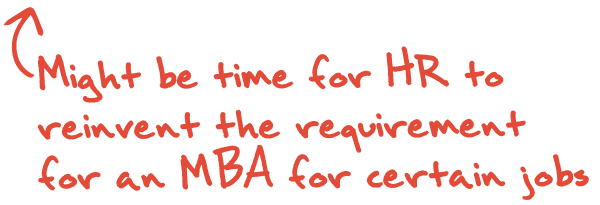
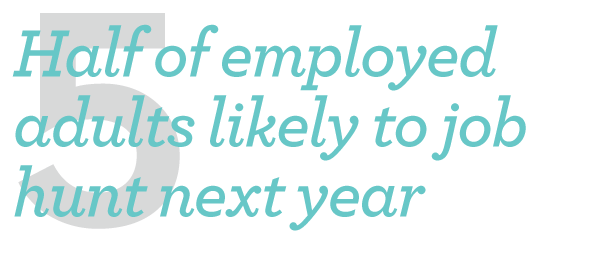
Nearly half of employed adults in the U.S. (48%) are likely to look for a new job in the next year, according to the results of the latest American Staffing Association Workforce Monitor survey conducted online by The Harris Poll. Employed individuals are open not only to searching for a new job, but also to transitioning to a different career. Four in 10 working adults (38%) say they are likely to change careers within the next year, as are 51% of millennials and 34% of Gen Xers. Many do not believe that landing their ideal job is a future possibility, as 44% of working adults are worried they will never find the perfect job for them. And 69% of students also worry about finding the right job. “The U.S. is immersed in the tightest labor market in modern history with millions of unfilled openings across geographies and industries,” said Richard Wahlquist, ASA president and chief executive officer. “It’s a job seeker’s market — a reality lost on many people who, as the ASA Workforce Monitor shows, sadly lack optimism about their prospects of finding a perfect position.” PR Newswire
